Ants can infest homes in search of food and shelter, causing frustration for homeowners. This guide will explore ten household materials you can use to eliminate ants, along with detailed DIY recipes.
DIY ant removal offers various safe and effective ways to control minor infestations. From borax and sugar baits to vinegar sprays and essential oils, these methods can help reduce ant activity. However, if ants keep returning or the infestation is too large to manage on your own, professional pest control is the best option. Contact Pest Exterminators for reliable, long-term solutions to keep your home ant-free.
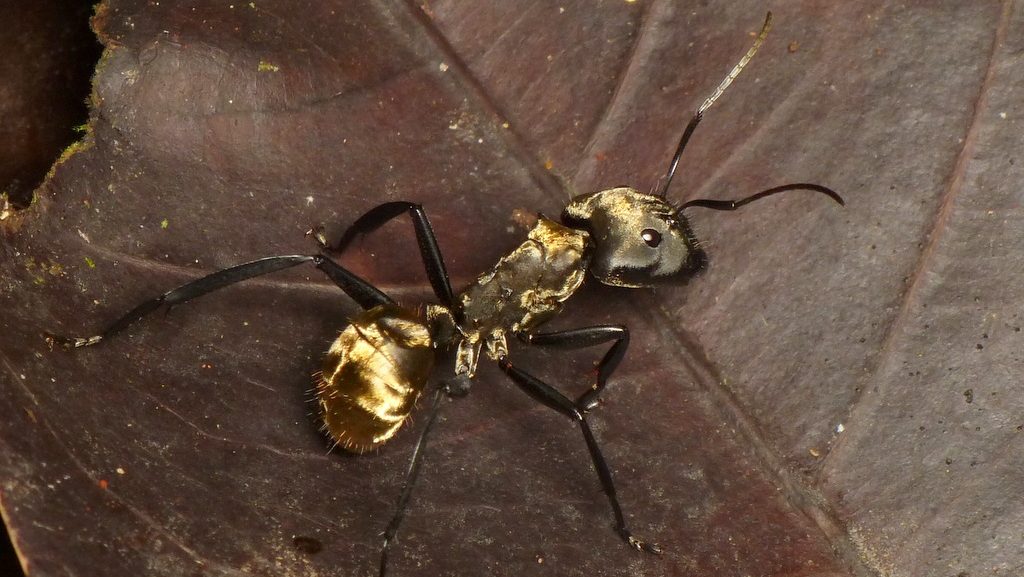 Now, let’s take a look at a few DIY ant removal methods using easily available materials to get rid of ants from your home.
Now, let’s take a look at a few DIY ant removal methods using easily available materials to get rid of ants from your home.




 If ants persist despite using DIY ant removal methods, it indicates a larger infestation. Contact our professional pest control service to address the ant infestation effectively and prevent future problems.
If ants persist despite using DIY ant removal methods, it indicates a larger infestation. Contact our professional pest control service to address the ant infestation effectively and prevent future problems.

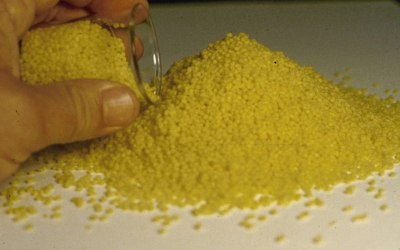
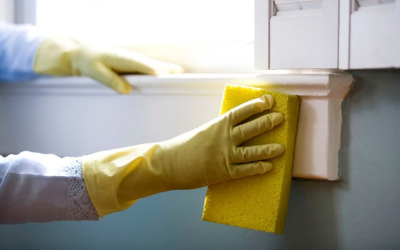 Lemon juice is an effective solution to remove ants, but it is not long-lasting. If you continue to experience ant problems after using the DIY ant removal method, contact our professional ant control service for long-term solutions to your ant problems.
Lemon juice is an effective solution to remove ants, but it is not long-lasting. If you continue to experience ant problems after using the DIY ant removal method, contact our professional ant control service for long-term solutions to your ant problems.

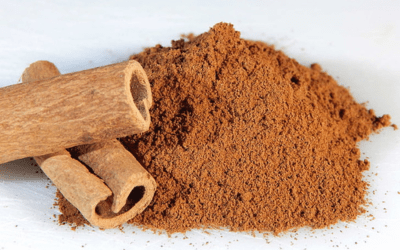
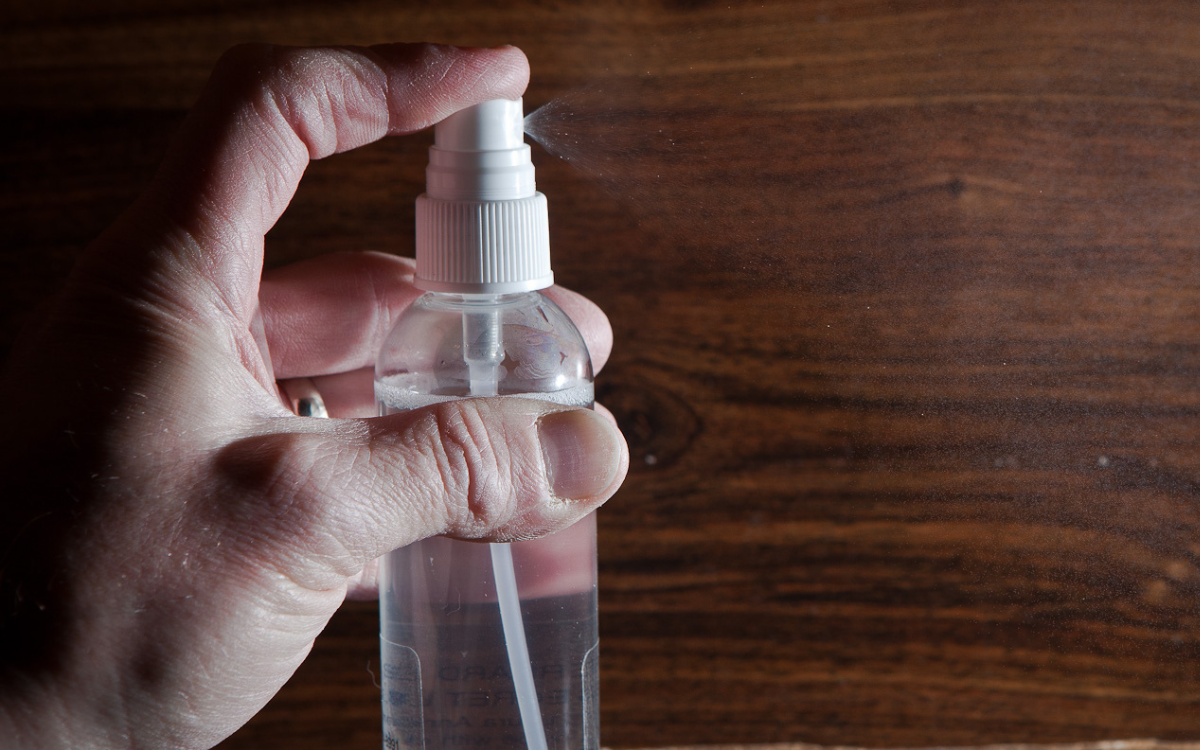
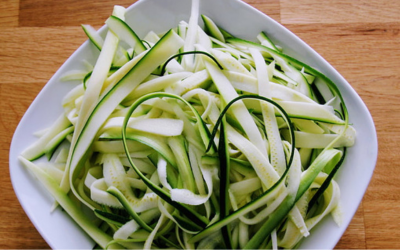
 Now, let’s take a look at a few DIY ant removal methods using easily available materials to get rid of ants from your home.
Now, let’s take a look at a few DIY ant removal methods using easily available materials to get rid of ants from your home.
Effective DIY Ant Removal Methods & How to Use
Here are the top 10 DIY ant removal methods you can use to get rid of ants in your home:1. Borax and Sugar Ant Bait
Borax is a natural substance that is effective at killing ants by interfering with their digestive system. When combined with sugar, it becomes an irresistible bait that ants carry bring to their colony, effectively eliminating the source.

Not getting a solution?
Get your free pest control estimate today!INGREDIENTS
-
 1/2 Cup Granulated Sugar
1/2 Cup Granulated Sugar
-
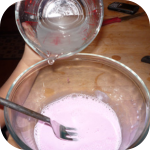 1 1/2 Tablespoon Borax
1 1/2 Tablespoon Borax
-
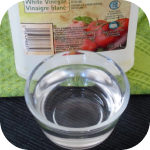 1 1/2 cups warm water
1 1/2 cups warm water
-
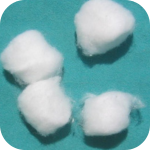 Cotton balls or small pieces of cardboard
Cotton balls or small pieces of cardboard
INSTRUCTIONS
1. Mix the Solution
- In a bowl, combine the sugar and borax.
- Pour in the warm water and stir until the sugar and borax are fully dissolved.
2. Prepare the Bait Stations
- Soak cotton balls in the solution until they are saturated.
- Alternatively, you can pour a small amount onto pieces of cardboard.
3. Place the Bait
- Locate areas where you’ve seen ant activity, such as along trails or near entry points.
- Place the soaked cotton balls or cardboard pieces in these areas.
4. Monitor and Replace
- Check the bait stations daily.
- Replace the bait when it dries out or is depleted.
SAFETY TIPS
-
Keep Away from Children and Pets: Borax might be harmful if ingested by pets or children. Place bait stations out of their reach.
-
Use Gloves: Wear gloves when handling borax to avoid skin irritation.
Note
This method allows ants to carry the poisoned bait back to their colony, which helps eliminate the entire nest over time.2. Vinegar & Water Ant Repellent
Vinegar disrupts ant pheromone trails, making it difficult for ants to navigate and communicate. It's a simple, pet-safe solution to prevent ants from entering your home.
INGREDIENTS
-
 1 cup white distilled Vinegar
1 cup white distilled Vinegar
-
 1 cup water
1 cup water
-
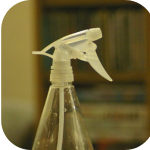 Spray bottle
Spray bottle
INSTRUCTIONS
1. Prepare the Solution
- Mix Water and Vinegar and store it in a spray bottle.
- Shake well to combine.
2. Identify Entry Points
- Find areas where ants are entering your home, such as windowsills, door thresholds, and cracks.
3. Apply the Solution
- Spray the mixture generously along ant trails, entry points, and any areas where ants are active.
- Tidy the area with a clean cloth to remove existing pheromone trails.
4. Repeat as Needed
- Reapply the solution daily or as needed to keep ants at bay.
Benefits
-
Natural and Safe: Vinegar is safe to use around pets and children.
-
Cleans Surfaces: This solution also acts as a natural cleaner.
Note
The vinegar smell fades as it dries but continues to deter ants.3. Baking Soda and Sugar Ant Killer
Baking soda disrupts an ant's digestive system, leading to its death. Combined with sugar, it becomes an effective bait that ants will bring back to their colony.
INGREDIENTS
-
 1/2 cup powdered sugar
1/2 cup powdered sugar
-
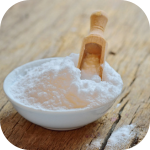 1/2 cup baking soda
1/2 cup baking soda
-
 Shallow containers or jar lids
Shallow containers or jar lids
INSTRUCTIONS
1. Mix the Ingredients
- Combine the powdered sugar and baking soda thoroughly.
2. Set Up Bait Stations
- Put small amounts of the mixture in containers or on jar lids.
3. Place the Bait
- Locate areas where ants are most active.
- Set the bait stations near ant trails, entry points, and nests.
4. Monitor and Refresh
- Check the bait stations regularly.
- Replenish the mixture as needed.
How It Works
-
Sugar Attracts Ants: Ants are drawn to the sugar in the mixture.
-
Baking Soda Kills Ants: When ants consume baking soda, it reacts with the acid present in their stomachs, producing carbon dioxide gas, which they cannot expel.
4. Diatomaceous Earth (Food Grade)
Diatomaceous earth (DE) is a naturally occurring powder made from fossil remains of tiny aquatic organisms called diatoms. It kills ants by absorbing the oils and fats from their exoskeleton so that the ants dehydrate.
INGREDIENTS
-
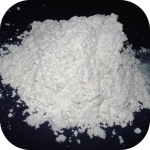 Food-grade diatomaceous earth
Food-grade diatomaceous earth
-
 Duster or a small scoop
Duster or a small scoop
-
 Protective mask and gloves
Protective mask and gloves
INSTRUCTIONS
1. Safety First
- Wear a protective mask to prevent consuming the fine powder.
- Put on gloves to prevent skin irritation.
2. Apply the DE
- Lightly dust areas where ants are present, such as along baseboards, window sills, and entry points.
- You can use a duster or gently sprinkle it by hand.
3. Treat Outdoor Areas
- Apply DE around the foundation of your home and in the garden where ants are active.
4. Reapply After Rain or Cleaning
- DE loses effectiveness when wet, so reapply after rainfall or cleaning.
Benefits
-
Non-Toxic: Safe for pets and children when using food-grade DE.
-
Long-Lasting: Remains effective as long as it is dry.
Note
Avoid using pool-grade DE, which is not safe for pest control purposes.5. Cornmeal Ant Bait
Cornmeal is an inexpensive and natural way to reduce ant populations. Ants are attracted to cornmeal but cannot digest it properly.
INGREDIENTS
-
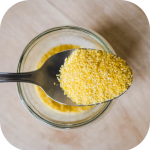 2 tbsp cornmeal
2 tbsp cornmeal
-
 1 tbsp boric acid
1 tbsp boric acid
-
 1 tbsp sugar (optional)
1 tbsp sugar (optional)
-
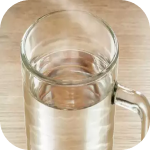 2-3 tbsp water
2-3 tbsp water
-
 Small containers or bottle caps
Small containers or bottle caps
INSTRUCTIONS
- Mix cornmeal, boric acid, and sugar in a bowl.
- Add water to form a thick paste.
- Place the mixture in small containers.
- Set containers near ant trails or entry points.
- Replace every few days until the ants are gone.
Note
Ants take the bait back to the colony, and the boric acid kills them by disrupting their digestive systems.6. Lemon Juice Ant Deterrent
Lemon juice is acidic and masks the scent trails ants use to navigate. Its strong citrus smell deters ants from entering your home.
INGREDIENTS
-
 1/2 Cup Fresh Lemon Juice
1/2 Cup Fresh Lemon Juice
-
 1/2 Cup Water
1/2 Cup Water
-
 Spray Bottle
Spray Bottle
INSTRUCTIONS
1. Prepare the Solution
- Squeeze fresh lemons to obtain 1/2 cup of juice.
- Mix the lemon juice and water in a spray bottle.
- Shake well to combine.
2. Identify Ant Entry Points
- Look for cracks, crevices, windows, and doors where ants may enter.
3. Apply the Solution
- Spray generously around entry points, along baseboards, and anywhere ants are active.
- Wipe down surfaces to remove any existing ant trails.
4. Repeat Regularly
- Reapply the solution every few days or after cleaning.
BENEFITS
-
Natural and Safe: Safe for use around pets and children.
-
Pleasant Aroma: Leaves a fresh citrus scent in your home.
Note
This method is natural and safe, making it a great alternative to chemical-based repellents.7. Essential Oils Ant Repellent
Certain essential oils like peppermint, tea tree, and eucalyptus are natural ant repellents due to their strong scents.
INGREDIENTS
-
 15 Drops of Peppermint Oil
15 Drops of Peppermint Oil
-
 1 Cup Water
1 Cup Water
-
 Spray Bottle
Spray Bottle
-
 Cotton Balls
Cotton Balls
INSTRUCTIONS
1. Prepare the Mixture
- Add 15 drops of the essential oil you like to the spray bottle.
- Pour in 1 cup of water.
- Shake well to combine.
2. Spray Application
- Spray the mixture around ant entry points, along baseboards, and in areas where ants are active.
3. Cotton Ball Method (Optional)
- Soak cotton balls in the essential oil.
- Place the cotton balls in areas where ants are entering your home.
4. Reapply as Needed
- Essential oils can evaporate over time. Reapply every few days.
BENEFITS
-
Safe and Natural: Non-toxic to humans and pets when properly diluted.
-
Aromatic: Leaves a pleasant scent in your home.
Note
Essential oils can be irritating to pets in concentrated amounts. Always dilute properly and monitor your pets for any adverse reactions.8. Cinnamon Powder Barrier
Cinnamon is a natural repellent due to its strong smell, which interferes with ants' pheromone trails.
INGREDIENTS
-
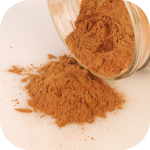 Ground Cinnamon
Ground Cinnamon
-
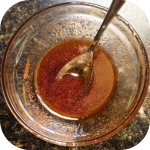 Cinnamon Essential Oil (Optional)
Cinnamon Essential Oil (Optional)
-
 Cotton Swabs (if using oil)
Cotton Swabs (if using oil)
INSTRUCTIONS
1. Create a Barrier
- Sprinkle ground cinnamon in a line around entry points, such as doorways and windowsills.
2. Enhance with Essential Oil (Optional)
- Take cinnamon essential oil and mix it with a few drops of water.
- Apply the mixture along ant trails and entry points using a cotton swab.
3. Reapply as Necessary
- Replenish the cinnamon barrier if it gets disturbed or after cleaning.
BENEFITS
-
Safe and Natural: Non-toxic and safe around pets and children.
-
Easy to Apply: Simple method to deter ants from entering.
Note
Cinnamon can stain light-coloured surfaces. Use with caution on carpets or upholstery.9. Soap and Water Spray
Soap breaks down the protective coating on ants, causing them to dehydrate and die. This method is effective for killing ants on contact.
INGREDIENTS
-
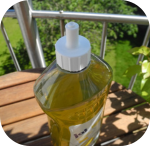 1 Teaspoon Liquid Dish Soap
1 Teaspoon Liquid Dish Soap
-
 1 Cup Warm Water
1 Cup Warm Water
-
 Spray Bottle
Spray Bottle
INSTRUCTIONS
1. Prepare the Solution
- In a spray bottle, combine the dish soap and warm water.
Swirl gently to mix without creating excessive bubbles.
2. Identify Target Areas
- Locate ants and their trails.
3. Apply the Spray
- Spray the solution directly on the ants.
Spray along ant trails and entry points.
4. Clean Up
- Wipe up dead ants and residue with a damp cloth.
BENEFITS
-
Quick Action: Immediately kills ants on contact.
-
Safe for Indoor Use: Non-toxic when using mild dish soap.
Note
If this DIY ant removal method does not address the ant colony, you should contact our professional pest control service for complete ant removal and treatment.10. Cucumber Peel Repellent
Ants dislike the taste of cucumber, especially bitter varieties. Using cucumber peels can act as a natural deterrent.
INGREDIENTS
-
 Fresh Cucumber Peels
Fresh Cucumber Peels
INSTRUCTIONS
1. Prepare the Peels
- Peel a fresh cucumber, keeping the skins in strips.
2. Place the Peels
- Lay the cucumber peels in areas where ants enter your home, such as windowsills, doorways, and near cracks.
3. Replace Regularly
- Replace the peels every couple of days as they dry out.
BENEFITS
-
Safe and Natural: Non-toxic and safe around pets and children.
-
Simple and Inexpensive: Easy to implement using kitchen scraps.
Are DIY Ant Removal Methods Enough?
While these natural prevention techniques are effective in reducing the likelihood of an infestation, they may not be enough if you’re already facing an ant infestation. Many DIY ant control methods, like using vinegar, essential oils, or diatomaceous earth, may work temporarily by repelling or killing individual ants. However, they often don’t eliminate the entire colony. Ants are highly persistent and can find alternative routes into your home if only surface-level solutions are used. The most reliable way to completely eradicate an ant infestation is taking the help of pest control professionals. At Pest Exterminators, we offer a wide range of ant control services designed to eliminate the ants fully and prevent future infestations. Our treatments are thorough, targeting both the visible ants and the hidden colonies, ensuring long-lasting protection for your home or business.Do’s & Don’ts: DIY Ant Removal Methods
DO'S
-
Use pest control products sparingly, following the manufacturer’s instructions to ensure safety for humans and pets.
-
Stay patient and consistent, as DIY ant control methods may take several days or weeks to show results.
-
Clean and monitor treated areas regularly to track progress and reapply treatments as necessary.
-
Prioritize safety by choosing non-toxic pest control products that are safe for children and pets.
-
Incorporate natural remedies like vinegar or essential oils to disrupt ant trails and entry points effectively.
DON'TS
-
Avoid excessive use of pesticides, as this can harm humans, pets, and the environment.
-
Don’t expect immediate results—ant control requires time, consistency, and patience.





